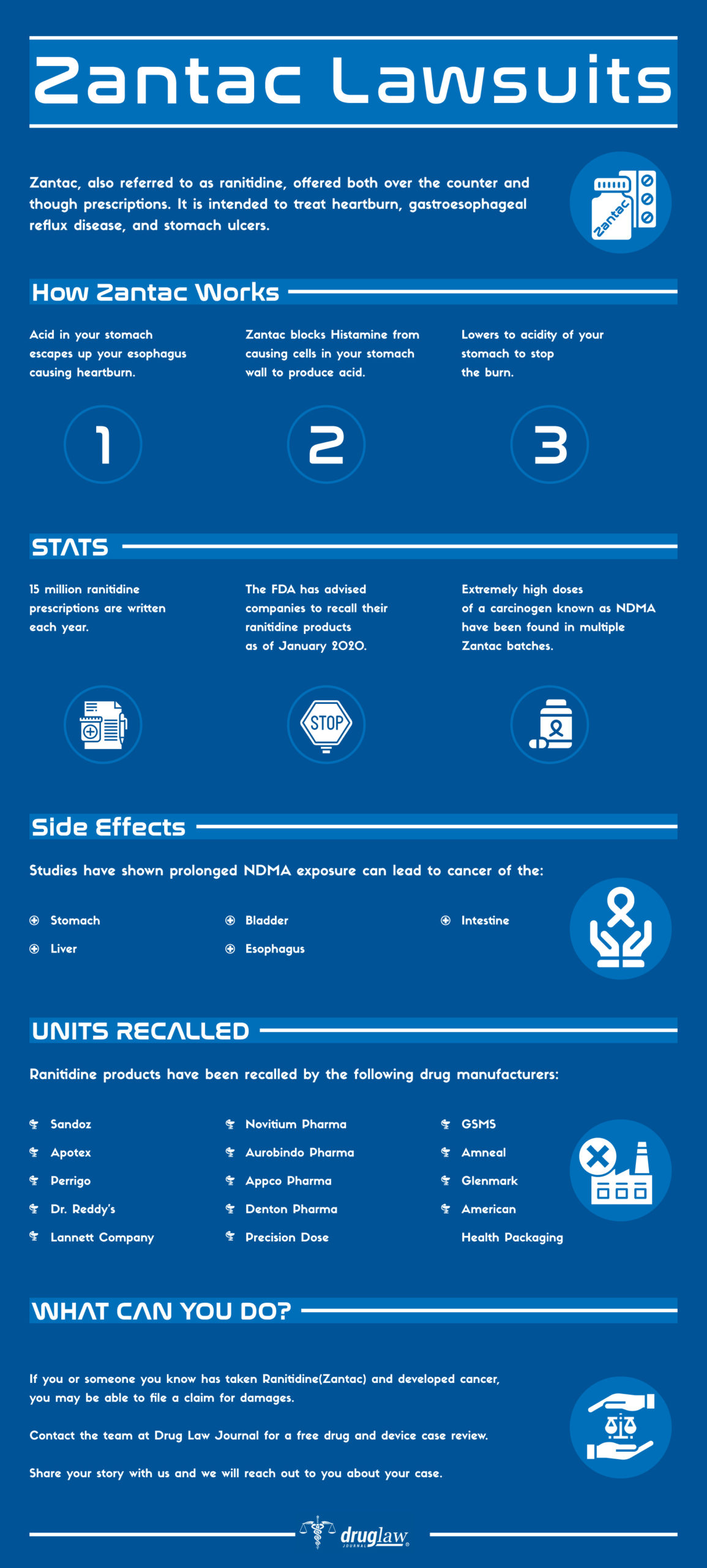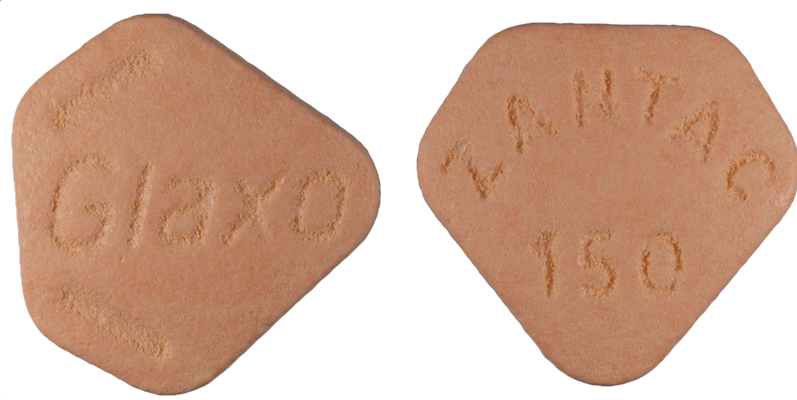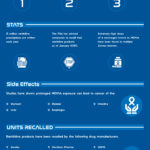Updated September 1, 2020
Since 2019, hundreds of patients have come forward to file claims in court alleging that the popular heartburn medication, Zantac (ranitidine) was contaminated with harmful carcinogenic compounds and that the contaminated medication caused them to develop a variety of dangerous cancers. Several of those cases have now been consolidated into multidistrict litigation now taking place in a federal court in Florida.

Background and History
Zantac (named generically as ranitidine) belongs to a class of medications known as H2-receptor antagonists (“H2 Blockers”) which act to lower the level of acid produced in the stomach. H2 Blockers are frequently used to treat gastric ulcers, heartburn, acid indigestion, and other related gastrointestinal conditions. It was developed in 1976 by researcher John Bradshaw and submitted by Glaxo Holdings (now GlaxoSmithKline) for approval by the U.S. Food and Drug Administration (FDA) in 1983.
Beginning in the 1980s, Zantac was sold and distributed in prescription format accompanied by one of the industry’s (then) most ambitious marketing programs. Zantac did not disappoint and Glaxo reached $1 billion in sales by December 1986 making the drug one of the most successful runaway hits in the industry. Zantac became available over-the-counter (OTC) in 1996 and soon thereafter was made available as a generic. Although brand name sales of Zantac declined once generics came on the market, the drug itself continued to propel strong sales. In 2018, Zantac ranked as one of the top-10 antacid tablets in the United States.
Valisure and Detection of NDMA in Ranitidine
The story about NDMA contamination in Zantac/ranitidine batches might not have come to light but for the efforts of a small, start-up pharmacy laboratory in New Haven, Connecticut. Known as Valisure, the company traces its genesis to founders Adam Clark-Joseph and David Light reconnecting after Clark-Joseph suffered from a contaminated batch of medication. The unfortunate incident served as an inspiration for the two scientists and entrepreneurs to bring together a team of professionals focused on preventing low-quality medications from entering the market.
Beginning in March 2019, Valisure began testing Zantac for carcinogens on a whim after Clark-Joseph’s infant daughter began taking it for acid-reflux. Immediately the testing revealed abnormal spikes evidencing the presence of NDMA – a potent carcinogen. After more testing, Valisure alerted the FDA in June 2019, and in September 2019, both the FDA and European regulators announced their own investigations into the safety of ranitidine. Soon thereafter, some drug makers announced unilateral halts in the production of generic Zantac while Canada intervened to stop distribution.
As a final blow to generic ranitidine, the FDA notified all manufacturers of Zantac to conduct testing for NMDA in October 2019. This order was followed by a recall of all Zantac products from the market on April 1, 2020.
What is NDMA?
Also known as “N-Nitrosodimethylamine”, NDMA is an organic chemical that is part of a family of compounds known as N-Nitrosamines. This group has been recognized as potent carcinogens with substantial dangers to human health and life. The United States Environmental Protection Agency (EPA) and the International Agency for Research on Cancer (IARC) both classify NDMA as a probable human carcinogen. The World Health Organization’s (WHO) own testing indicates that NDMA exposure is associated with gastric and/or colorectal cancer. NDMA is generally never intentionally produced in the United States unless it is going to be used to induce tumor growth in lab experiments.
How Did NDMA Get in Zantac?
The presence of NDMA in Zantac is not generally believed to be caused by a defect in the manufacturing process itself. Rather, it is alleged that NDMA is inherently a structure present in the molecular structure of ranitidine. Specifically, claims allege that when anyone takes ranitidine, the active ingredient in the medication produces NDMA, exposing every user to the carcinogen.
Is There a Zantac Lawsuit?
Beginning in 2019, cancer sufferers, believing that they developed their illnesses after taking Zantac, began filing lawsuits against the manufacturers of ranitidine in several courts across the United States. The manufacturers named in many of these lawsuits are:
- Boehringer Ingelheim Pharmaceuticals, Inc.
- Sanofi Aventis, S.A./Sanofi-U.S. Services, Inc.
- Chattem, Inc.
- Pfizer, Inc.
- GlaxoSmithKline, Inc.
Specific Cases:
Joseph John Balisteri
Mr. Balisteri began using OTC Zantac in 2000 and continued using the 150mg variety 2-3 times a week until 2019. In November 2018, he was diagnosed with bladder cancer, a condition associated with NDMA contamination. After learning about the recall and his cancer diagnosis, he filed suit in California in November 2019.
Walter H. Hansen
Walter Hansen, a resident of Solano County, California, began taking OTC Zantac in 2010 and used the 150mg dosage at least once a day through 2019. In 2017, he was diagnosed with colorectal cancer, which later spread into his liver and lungs. These are all cancer vectors associated with NDMA contamination. He filed suit in California in October 2019.
Cases similar to those filed by Mr. Hansen and Mr. Balisteri have now been filed all over the United States and in 2020 were consolidated into a single multidistrict litigation (MDL) taking place in federal court in Florida (MDL-2924). Judge Robin L. Rosenberg of the Southern District of Florida (West Palm Beach) is presiding over the MDL and new cases are being added at this time.
Joining a Zantac Lawsuit
If you believe that your cancer diagnosis – in particular: liver, bladder, stomach, intestinal, colorectal or esophageal; was the result of taking Zantac or generic ranitidine, and are interested in participating in a lawsuit seeking damages, you and your lawyer will need to establish a few preliminary facts as part of a claim. Specifically:
- That You Took Zantac or Generic Ranitidine.
While this may not sound difficult, in reality, it can be an issue depending upon which type of Zantac you ingested. If you took a prescription Zantac, then those records may be simple to obtain. However, if you took OTC Zantac or ranitidine, you may have to produce receipts and doctor’s notes or similar evidence to establish your identity as a consumer.
- You Have a Cancer Diagnosis.
Although Zantac consumers may suffer from any of a wide variety of cancers, a certain few are generally associated with NDMA contamination, such as liver, bladder, stomach, intestinal, colorectal, or esophageal cancers.
- A Linkage Between Cancer Diagnosis and Use of Zantac or Generic Ranitidine.
If you took Zantac daily for 20 years, it may be easier to establish a linkage between your cancer diagnosis and the medication, than if you only took Zantac periodically for a very short period of time (less than a year).
Regardless of whether you feel you have answers to all of these threshold questions, if you feel you have been harmed then you should take the opportunity to consult with an attorney to learn more about your rights and possible entitlement to compensation for injuries. Consultations with law offices in these types of matters are free-of-charge and do not oblige you to any further action unless you wish to proceed.

Sources Cited (22):
1) “Some ranitidine (Zantac) has tested safe, but more recalled for too much carcinogen” https://www.miamiherald.com/news/health-care/article237219936.html
2) “A tiny pharmacy is identifying big problems with common drugs, including Zantac” https://www.washingtonpost.com/science/a-tiny-pharmacy-is-identifying-big-problems-with-common-drugs-including-zantac/2019/11/08/6dd009ca-eb76-11e9-9c6d-436a0df4f31d_story.html
3) “FDA Requests Removal of All Ranitidine Products (Zantac) from the Market” https://www.fda.gov/news-events/press-announcements/fda-requests-removal-all-ranitidine-products-zantac-market
4) “Three Plaintiffs File New Zantac Cancer Lawsuits” https://newyork.legalexaminer.com/legal/three-plaintiffs-file-new-zantac-cancer-lawsuits/
5) “Statement alerting patients and health care professionals of NDMA found in samples of ranitidine” https://www.fda.gov/news-events/press-announcements/statement-alerting-patients-and-health-care-professionals-ndma-found-samples-ranitidine#:~:text=NDMA%20is%20classified%20as%20a,%2C%20dairy%20products%2C%20and%20vegetables.
6) “WHAT IS N-NITROSODIMETHYLAMINE?” https://www.atsdr.cdc.gov/toxprofiles/tp141-c1.pdf
7) “Technical Fact Sheet – N-Nitroso-dimethylamine (NDMA)” https://www.epa.gov/sites/production/files/2014-03/documents/ffrrofactsheet_contaminant_ndma_january2014_final.pdf
8) “N-Nitrosodimethylamine (NDMA) as a Drinking Water Contaminant: A Review” https://superfund.berkeley.edu/pdf/231.pdf
9) “Questions and Answers: NDMA impurities in ranitidine (commonly known as Zantac)” https://www.fda.gov/drugs/drug-safety-and-availability/questions-and-answers-ndma-impurities-ranitidine-commonly-known-zantac#:~:text=FDA%20has%20found%20N%2Dnitrosodimethylamine,ranitidine%20they%20may%20currently%20have.
10) “Hansen v. Boehringer Ingelheim Pharmaceuticals, Inc., et al” https://ecf.caed.uscourts.gov/doc1/033111300340
11) “Balisteri v. Boehringer Ingelheim Pharmaceuticals, Inc., et al” https://ecf.cand.uscourts.gov/doc1/035118602775
12) “Our Mission” https://www.valisure.com/about-us/
13) “Formation Mechanism of NDMA from Ranitidine, Trimethylamine, and Other Tertiary Amines during Chloramination: A Computational Study” https://www.ncbi.nlm.nih.gov/pmc/articles/PMC4123930/
14) “The Finding of N‐Nitrosodimethylamine in Common Medicines” https://www.ncbi.nlm.nih.gov/pmc/articles/PMC7288647/
15) “Oral intake of ranitidine increases urinary excretion of N-nitrosodimethylamine” https://pubmed.ncbi.nlm.nih.gov/26992900/
16) “Zantac, Ranitidine Pulled From Market, Here Are FDA’s Latest Cancer Concerns” https://www.forbes.com/sites/brucelee/2020/04/02/zantac-ranitidine-pulled-from-market-here-are-fdas-latest-cancer-concerns/#e60d6fb2b8c5
17) “Zantac is prescribed 15 million times a year. So how did it become a potential cancer risk?” https://www.usatoday.com/story/news/health/2019/11/07/how-did-zantac-become-potential-cancer-risk-fda-wants-find-out/2509043001/
18) “Popular heartburn drug ranitidine recalled: What you need to know and do” https://www.health.harvard.edu/blog/popular-heartburn-drug-ranitidine-recalled-what-you-need-to-know-and-do-2019092817911
19) “Ranitidine (Zantac) recall expanded, many questions remain” https://www.health.harvard.edu/blog/ranitidine-zantac-recall-expanded-many-questions-remain-2020040218044
20) “Lab finds NDMA in Zantac can develop during storage” https://www.fiercepharma.com/manufacturing/lab-finds-ndma-zantac-can-develop-during-storage-bloomberg
21) “FDA Recalls All Ranitidine (Zantac) Products, Citing Increased Risk of Cancer” https://www.ajmc.com/view/fda-recalls-all-ranitidine-products-zantac-citing-increased-risk-of-cancer
22) “Valisure Detects NDMA in Ranitidine” https://www.valisure.com/blog/valisure-news/detection-of-ndma-in-raniditine/



